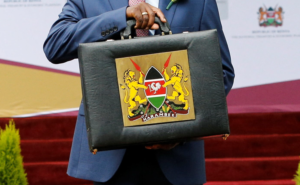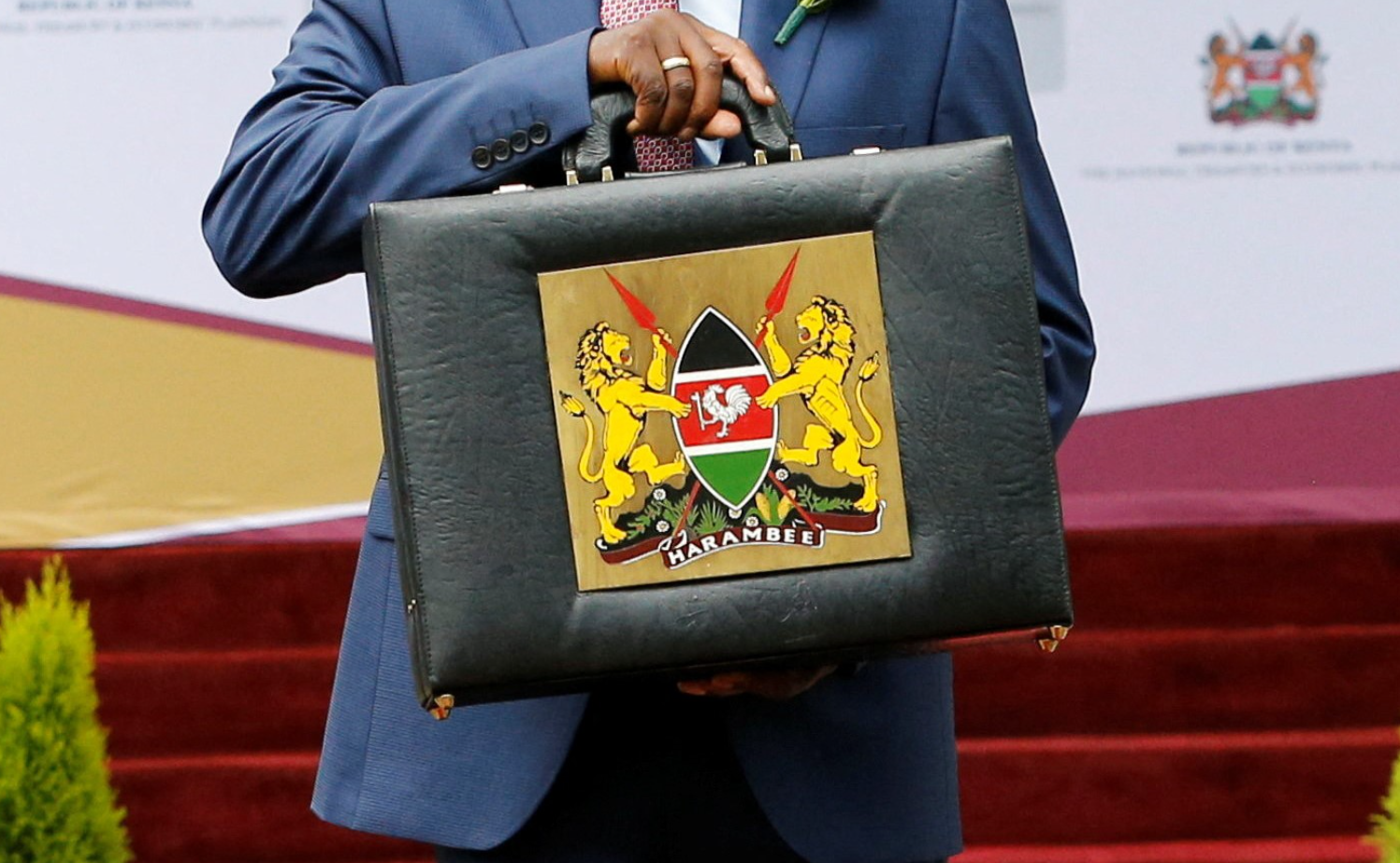A video trending on social media of a 19-year-old University student who gave a cop the beating of his life has gained mixed reactions amongst Kenyans.
Ian Ngige Njoroge, who was caught on camera assaulting traffic police, has been arrested and charged with several crimes. He was accused of causing grievous harm, resisting arrest, and robbery with violence. Njoroge allegedly stole the police officer’s mobile phone worth Ksh 50,000, a battery that belongs to a police communication gadget, and resisted arrest.

Ian Njoroge in police custody
The police report detailed that the police officer was on duty along Kamiti Road at Mirema Junction controlling traffic when he spotted a motor vehicle making a U-turn on the road, obstructing other road users. When he approached the said motor vehicle, the driver hit the road curb and got stuck.
During the stop, the traffic police officer boarded the vehicle and, according to the report, directed the driver to the Kasarani Police Station. While driving the motorist drew a sword from under the seat.
Fearing for his life, the police officer is said to have jumped out of the car and fled, with the motorist in hot pursuit after him. Upon catching him Njoroge began kicking and punching him as he lay helpless on the ground.

Ian Njoroge commiting the crime and after being arrested
The first-year student at the Technical University of Kenya committed the act in the company of four others who are yet to be arrested. He denied the charges before Milimani Law Courts Senior Principal Magistrate Benmark Ekhubi.
Njoroge has been charged under the Traffic Act with obstructing other motorists while driving and carrying excess passengers in his vehicle. He has been charged under section 296(2) of the penal code, which carries a mandatory death sentence upon conviction.
When Njoroge was interrogated, he gave his reasons for his actions by stating that
He was just angry and they did not understand each other because the officer wanted a lot of money, which he could not get
The defence team representing Njoroge told the court that officers who arrested the suspect handled him in an inhumane and ruthless manner. They also stated that Njoroge was molested in his house at the time of the arrest.
Njoroge pleaded not guilty to all the charges and is currently being held at Industrial Area prison, awaiting trial as investigations are being completed.
This comes as yet another 24-year-old man in Kakamega was on Tuesday handed a seven-year prison sentence for physically assaulting a police officer.
He was reported to have assaulted a police officer while on official duty, causing him bodily harm as per the P3 form produced in court. The accused initially declined to take a plea deal on two different occasions before eventually pleading guilty to all four charges against him.
Upon delivering his judgment, the Magistrate noted that the offence of assaulting police officers is becoming rampant nationwide, and, therefore, a custodial sentence is the most suitable for deterring the community and any person intending to commit such an offence in the future.
What to Keep in Mind Before Assaulting a Police Officer in Kenya.
Legal Consequences
Assaulting a police officer is punishable under the Penal Code of Kenya, which can lead to severe penalties, including imprisonment. According to Section 103 (a) of the National Police Service Act No. 11 (A) of 2011, offenses related to the assault of police can attract a fine not exceeding 1 million shillings, imprisonment for a term not exceeding ten years, or both.
Any person who assaults a police officer either in (a) resists or willfully obstructs a police officer in the due execution of the police officer’s duties; (b) resists or willfully obstructs any person acting in aid of the police officer; (c) attacks an animal belonging to the Service; or (d) intentionally or recklessly, destroys police property, shall be liable conviction to a fine and jail term stated above.
A conviction for assaulting a police officer will result in a criminal record, which can affect future employment opportunities, travel, and other aspects of life.
Rights of the Accused
You have the right to a fair trial and legal representation if accused. The Kenyan Constitution guarantees these rights. Chapter 14, section 244 (a) and (e) Of the Kenyan constitution requires police officers to strive for the highest standards of professionalism and discipline among its members and foster and promote relationships with the broader society.
Engage a lawyer if you find yourself on the wrong side of the law; this is crucial in navigating the legal system and ensuring your rights are protected throughout the judicial process.

Lawyer talking to his client
Justifiable Use of Force
The law allows for self-defense if you prove that the force used was necessary to protect yourself from immediate harm. However, this is subject to legal scrutiny and must be proportionate to the threat faced. Act wisely and have proof that it was self-defense.
Legal Definitions
According to the Penal Code (Chapter 14, Section 244), assaulting, obstructing, or resisting a police officer while performing their duties is a crime. Assault that causes severe injury or involves a weapon can be classified as aggravated, leading to more severe charges and penalties.
Circumstances of the Incident
Gather any available evidence, including witness statements and video recordings, which can be crucial in defending your case. It is important to note that the incident’s context will be closely examined, whether during a lawful arrest, a public protest, or any other situation.
Alternative Dispute Resolution
In some cases, alternative dispute resolution methods like mediation might be possible to address grievances without resorting to violence or criminal activity. Official complaints mechanisms should be utilized to address any grievances against police misconduct through bodies like the Independent Policing Oversight Authority (IPOA).
Impact on Public Perception
Assaulting a police officer can negatively impact public perception, possibly influencing jury decisions and social standing. This will mostly lead to you being convicted in a way that serves as a lesson or an example to send out a message. Note that High-profile cases can attract media attention, adding public pressure and scrutiny.
Moral and Ethical Considerations
Consider non-violent approaches to address disputes or grievances with law enforcement to avoid legal trouble and promote peaceful resolutions. Look at the bigger picture and reflect on the impact of your actions on the community and your relationship with law enforcement.
To conclude
Understanding the gravity of assaulting a police officer and the far-reaching consequences it entails is crucial, It’s just not a good idea. Legal counsel should be sought immediately if one is in such a situation.













